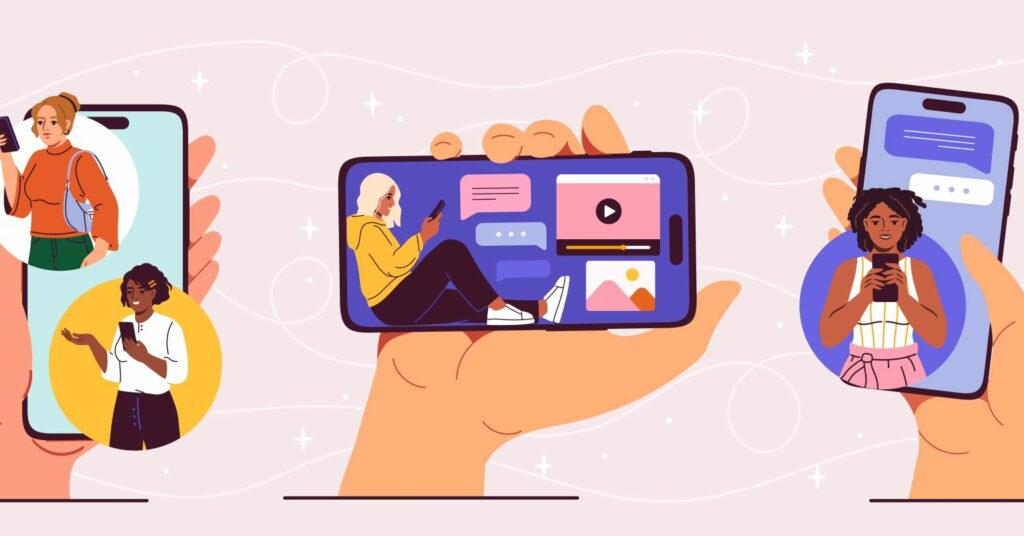TikTok and other social media channels have become popular ways to share information about mental health. From leading experts to people with lived experience to influencers with dubious credentials, such as those who lack professional qualifications or promote unproven treatments, there is no shortage of people posting mental health information online. Although raising awareness is essential, there have been some unintended consequences.
One concern is the growing trend of people diagnosing themselves—or others—based on what they are learning online. Unfortunately, self-diagnoses can cause unnecessary worry, misdiagnosis, or lead to harmful self-treatments. It’s crucial to be cautious and aware of these potential risks when navigating mental health information online.
Unnecessary Worry
One problem with self-diagnosis is that it often leads to unnecessary anxiety. For example, many people come across videos or articles that suggest everyday experiences are symptoms of a severe mental health condition. It’s easy to fall down the rabbit hole of online content and come out convinced that you have a particular disorder. For example, I’ve had many clients come to me wondering if they have autism based on what they saw online. Still, after a comprehensive assessment, it became clear that what they were actually dealing with was social anxiety, depression, burnout, or even ADHD (they were feeling uncomfortable in social situations for very different reasons).
Similarly, we saw a wave of young people diagnosing themselves with Tourette’s syndrome following a TikTok trend (Frey, Black, and Malaty, 2022). In reality, many of these cases were examples of social contagion, where individuals subconsciously mimic behaviours they observe online, leading to a false perception of having a condition. These situations underscore the dangers of assuming that complex mental health conditions can be self-diagnosed accurately based on what you learn in a 30-second video.
Mislabeling Others
In addition to self-diagnosis, there’s also a trend of mislabeling others. It has become increasingly common for people to use terms like “narcissist” to describe anyone they find difficult or disagreeable. While narcissistic personality disorder is a real and serious condition characterized by a pervasive pattern of grandiosity, need for admiration, and lack of empathy, not everyone who displays challenging or self-centred behaviour meets the criteria for this diagnosis.
This oversimplification can be harmful. It’s important to remember that diagnosing someone, especially with a personality disorder, requires a comprehensive evaluation by a trained professional.
How Professional Diagnoses Work
So, how do psychologists, psychiatrists, and other doctors make a diagnosis? The process is much more thorough than what you’ll find in a TikTok video or a Google search. When professionals evaluate someone, they consider a range of possible conditions. The goal is to rule out other disorders that might cause similar symptoms. For example, difficulty concentrating could be a sign of ADHD, anxiety, depression, or sleep problems. A mental health clinician is trained to do the detective work necessary to diagnose your symptoms and make the correct diagnosis.
Understanding the Severity of Symptoms
Another challenge with self-diagnosis is that what might seem like a severe symptom to someone without medical training may not be considered severe by a professional. For instance, difficulty focusing might feel overwhelming and lead someone to believe they have a serious disorder. However, a healthcare professional might see this as a common experience influenced by stress or lack of sleep (both of which can make you feel terrible).
Conversely, not every symptom is a sign of a mental health issue. Some websites and social media influencers attempt to sell products by convincing people that normal human experiences—like occasional anxiety or trouble sleeping—are actually signs of trauma or a mental disorder. While it’s true that these experiences can be symptoms in some cases, they are often part of the natural ups and downs of life.
Why Professional Help Matters
Mental health is complex, and self-diagnosis can often lead to more harm than good. Consulting with a professional is always the best course of action when in doubt. Mental health professionals are trained to properly assess your symptoms, considering various potential causes and conditions.
Social Media Essential Reads
Suppose you’re concerned about your mental health or the health of someone you care about. In that case, I encourage you to contact a licensed professional.
To find a therapist near you, visit the Psychology Today Therapy Directory.
Source link : https://www.psychologytoday.com/za/blog/still-mind/202410/the-dangers-of-a-tiktok-self-diagnosis
Author :
Publish date : 2024-10-09 10:09:15
Copyright for syndicated content belongs to the linked Source.
